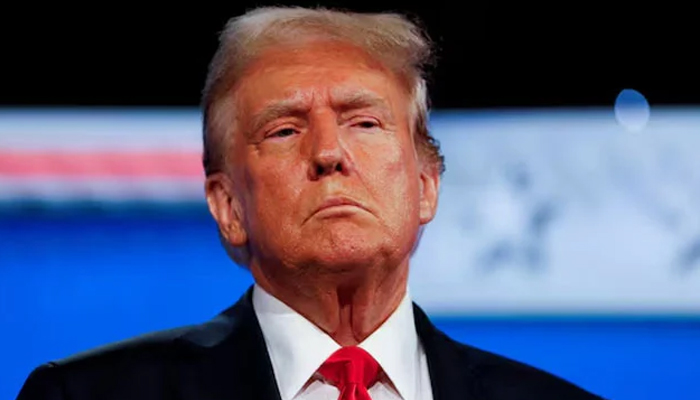Expert's take on Trump 'fascist' allegation
"He's an extreme version of populism that is getting closer to fascism," opines historian Federico Finchelstein
November 01, 2024

Donald Trump has been labelled a fascist by his White House rival Kamala Harris and by his former chief of staff, John Kelly.
Federico Finchelstein, a historian at the New School for Social Research in New York who specialises in extremism and transatlantic fascism, spoke to AFP about the allegations which Trump has strongly refuted.
How does Trump rate in terms of extremism?
"He's an extreme version of populism that is getting closer to fascism," Finchelstein told AFP, defining four key elements of fascism as political violence, propaganda and misinformation, xenophobia and dictatorship.
These features may be present in populism but are much more pronounced in fascism, according to his thesis, with Adolf Hitler the most extreme case.
"History doesn't repeat itself, but this is already a red flag that we are even considering the question.
"There is a risk here that Trump will become as authoritarian as he would like to be."
Why do many Americans support him?
"There are a lot of people in the United States who are not satisfied with the economy or with the changes that this country is undergoing. And sometimes a combination of grievances leads them to choose an authoritarian.
"They are not considering that Trump is proposing magical solutions to real problems and that there is a problem here with a leader that represents that his will is more important than reality itself."
Are his supporters extremist?
Finchelstein sees some "dog whistles" to hardcore followers, but says the bigger problem may be mainstream voters who have become inured to Trump's far-right rhetoric.
"What is really the trouble here is not the extremism but rather how this extremism is normalised in society, often in the media but last but not least in the voters. This used to be toxic politics and suddenly it's not.
"We are talking about a candidate that promises mass deportations under the framework of what he thinks of as problems related to risk and genetics. This is really extreme."
What would a Trump victory mean?
"What we have is a wannabe fascist leader. But the question remains, to what extent he will be able to do all the things that he would like to do?"
Finchelstein noted that a Brazilian court barred Jair Bolsonaro from office after he alleged fraud in his losing 2022 presidential campaign. Trump has not suffered that fate after January 6.
"The work of justice was either not working or it was too late. How could it be that someone with so many legal problems could be a candidate?
"The January 6 riot technically speaking was an (attempted) coup d'etat. And one wonders how often it was presented as such."











